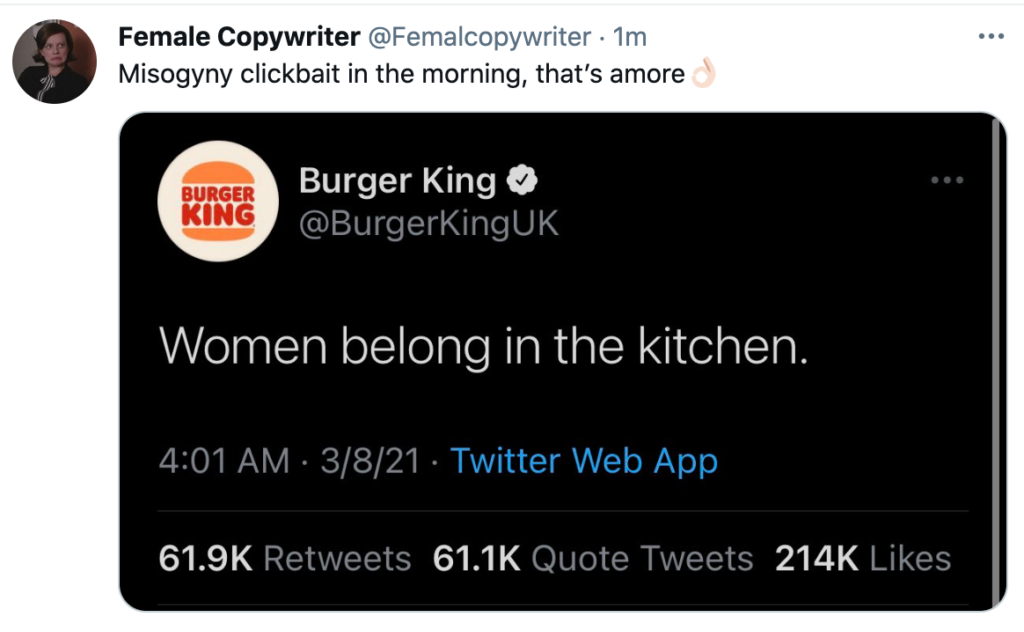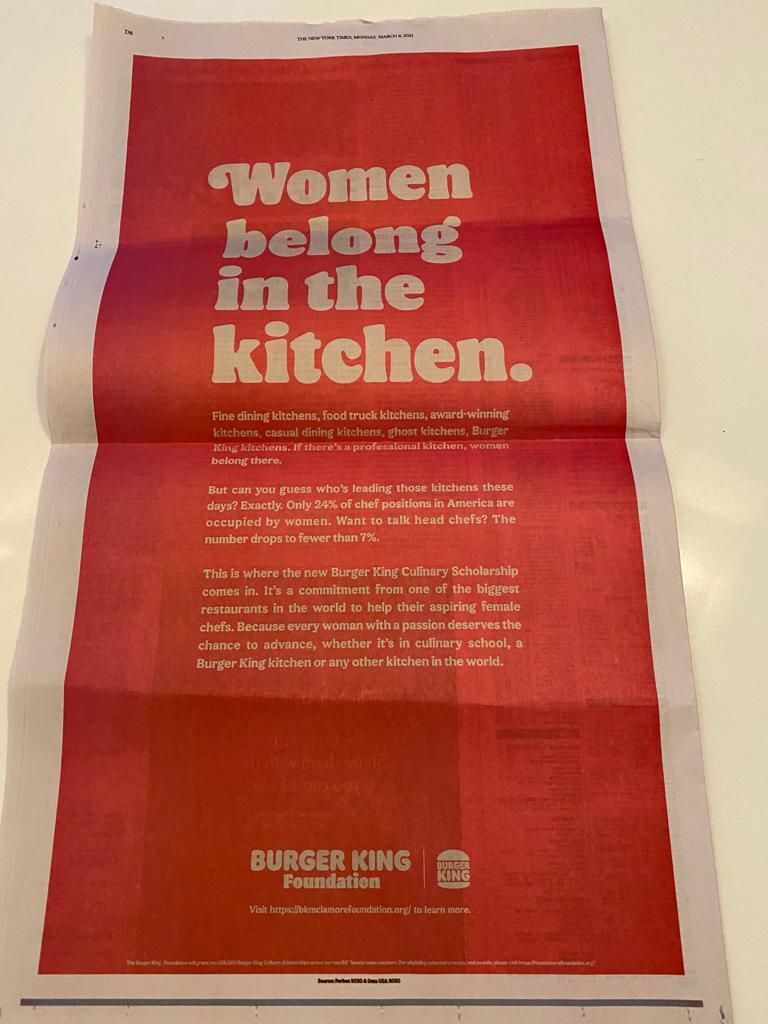If you’re like me, you check social media first thing when you wake up. If you’re also like me, you haven’t held a printed newspaper since before the pandemic.
I woke up to discussions around a really crappy social advertisement:

The author of the ad is Burger King, and truth be told, Burger King has been responsible for more positive social case studies than any other brand – both in terms of ads and social voice.
We’re all suffering from Covid related depression. Since so much of marketing strategy relies on a keen sense of context, it’s possible that marketers aren’t in their most productive headspace right now. Fair enough.
But this is crap.
Here is the full ad, if you still hold newspapers:

The idea is that the headline is supposed to shock you into paying attention to the punchline.
By that time, you’re going to be SO impressed, or SO inspired, or SO awestruck by the twist, that you’ll come for the misogyny but stay for the charitable donation.
I don’t want to waste too much time on this, but here are a few takeaways so we can all learn together in real time:
Context is King. Burger King should know this better than anyone. It’s a crappy time in the world, with crappy people putting out crappy statements and trying to gaslight everyone into supporting one thing or the other. We don’t need to contribute to this. We can use our platform and our messaging power to inspire. I said the same thing about some agency’s recent deepfake political ad/video.
We need to raise the ethical standards of the industry. If we can’t, we will be replaced by people who can and will.
You don’t own the right to trigger me. Regardless of your clever payoff, you don’t have the right to use negative messaging just to get my attention. Burger King CMO Fernando told me on Linkedin that “well, the intention is not to trigger people but to give a positive meaning to a phrase that shouldn’t be used. But, again, thanks for the feedback”.
We will look at the condescension in a moment, but let’s talk about giving a positive meaning to a phrase that shouldn’t be used?
Any examples of that you can share with us? If it shouldn’t be used, there’s a reason it shouldn’t be used. Bottom line – it’s not yours to mess with.
The Medium dictates the context. Toronto, where I sit, has a long history of leadership around the concept of the medium being the message. It’s also the context. In a boardroom somewhere, in as assumption that’s all my own, the newspaper article was presented to a team as the jewel of the campaign, with the social campaigns being these after-thoughts or these basic tools used to support the main idea.
Understanding context also means understanding user journeys, and for anyone social first, the concept was doomed from the get-go.
A horrible response. Burger King, who’s pioneered the use of the social media and social media specific voice to drive a real-time and culturally relevant dialog, has been particularly condescending and belligerent in their responses on social. The only thing worse than missing the context is yelling at the context afterwards.
Context don’t care about your intentions. In response to some questions about the quality and judgment behind the ad, a lot of talk was focused on their intentions. We need to do better here. This isn’t a court of law. Just because we CAN do something doesn’t mean we SHOULD. We need to exercise judgment both on behalf of the client and on behalf of the world we’re creating.
That’s enough. I don’t care what their intentions were, this was poor judgment. Am I being too sensitive? I don’t think so. If you want to make a difference on IWD, don’t hide behind your intentions if it means harming the actual people your ad was conceived to help.
Am I being self serving? I don’t think so either. Although I’m not expecting to receive any Burger King briefs in the near future, our pledge to our clients is that we will make sure they never do anything stupid, that they understand the context, that it’s routed in ultramodern theory and that it attempts to leave the world a better place than when they found it.
At bare minimum, do no harm.
